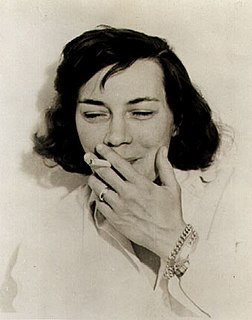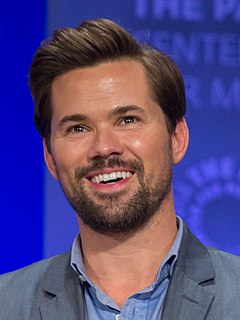A Quote by Georg C. Lichtenberg
If it were true what in the end would be gained? Nothing but another truth. Is this such a mighty advantage? We have enough old truths still to digest, and even these we would be quite unable to endure if we did not sometimes flavor them with lies.
Related Quotes
Children who are brought up with one parent or another parent or shared parenthood, when there has been a divorce and hatred within families, it breeds a tremendous amount of instability in the life of a child. And many of these children end up in the homosexual movement. Even if they don't, they take so much baggage into their marriages, that they are unable sometimes, at least theoretically unable, to stand against all of the cultural forces that would disrupt them and their families.
They were not friends. They didn't know each other. It struck Tom like a horrible truth, true for all time, true for the people he had known in the past and for those he would know in the future: each had stood and would stand before him, and he would know time and time again that he would never know them, and the worst was that there would always be the illusion, for a time, that he did know them, and that he and they were completely in harmony and alike. For an instant the wordless shock of his realization seemed more than he could bear.
Between two fantasy alternatives, that Holbein the Younger had lived long enough to have painted Shakespeare or that a prototype of the camera had been invented early enough to have photographed him, most Bardolators would choose the photograph. This is not just because it would presumably show what Shakespeare really looked like, for even if the photograph were faded, barely legible, a brownish shadow, we would probably still prefer it to another glorious Holbein. Having a photograph of Shakespeare would be like having a nail from the True Cross.
I learned as a really young kid, when my dad was telling me one story and my mom was telling me another that, even as a 5-year-old boy, there was no way that both of these stories are true. Something in the middle is true, and I have to figure out what it is, what the truth is, and I never did quite figure that out.
If a book were written all in numbers, it would be true. It would be just. Nothing said in words ever came out quite even. Things in words got twisted and ran together, instead of staying straight and fitting together. But underneath the words, at the center, like the center of the Square, it all came out even. Everything could change, yet nothing would be lost. If you saw the numbers you could see that, the balance, the pattern. You saw the foundations of the world. And they were solid.
If men were equally at risk from this condition - if they knew their bellies might swell as if they were suffering from end-stage cirrhosis, that they would have to go nearly a year without a stiff drink, a cigarette, or even an aspirin, that they would be subject to fainting spells and unable to fight their way onto commuter trains - then I am sure that pregnancy would be classified as a sexually transmitted disease and abortions would be no more controversial than emergency appendectomies.
Why would scientists dedicated to uncovering the truth about the natural world deliberately misrepresent the work of their own colleagues? Why would they spread accusations with no basis? Why would they refuse to correct their arguments once they had been shown to be incorrect? And why did the press continue to quote them, year after year, even as their claims were shown, one after another, to be false?
Experts kill me. Economic experts, that is. Corporations, foundations, publications and governments pay them by the bucketful, and they fill buckets with forecasts that change more frequently than white-collar, workers do shirts. What Lies Ahead is the usual title. What Lies would often be more appropriate. If women's hemlines changed as rapidly as an economist's forecasts, the fashion people and the textile industry would be more profitable than any other. In fact, if all the country's economists were laid end to end, they still wouldn't reach a conclusion.
My pacifism came after I joined the army and was shipped over to Korea. There was a little one-room orphanage there called Song-do. There were 180 babies in there, and they were GI babies. The U.S. government would not acknowledge this, and the Korean government had nothing to do with them. They were living on a 100-pound bag of rice a month. Some of those kids, when they were old enough, would go out and shine shoes. They would show up at the gate of our compound to shine shoes, and you'd swear they were looking for their fathers.




































